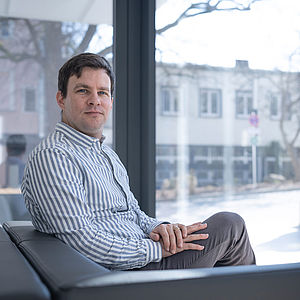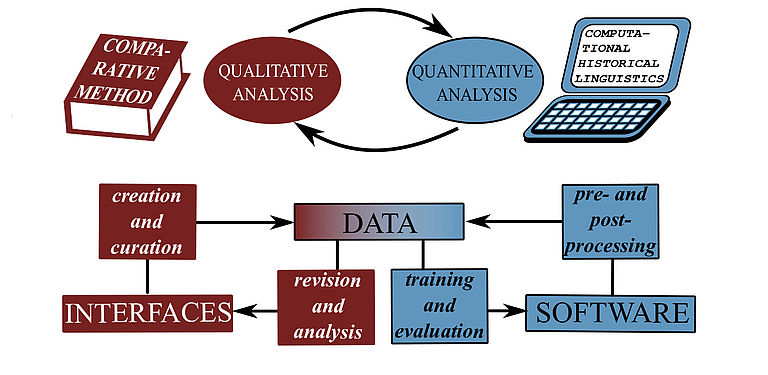"I am interested in the linguistic methods we use to compare languages in order to understand how language families evolve, how they developed into their current shape, and what characteristics human languages share. My initial interest in linguistics was triggered by the experience I made in Saint Petersburg, where I conducted my alternative civilian service abroad. I taught juggling in the social project 'Upsala Zirk', that supports low-income children. Learning Russian quickly, I wanted to learn additional languages that are even more different from German. So I ended up studying Chinese studies and comparative linguistics in Berlin. While studying comparative linguistics, however, I quickly discovered considerable methodological problems in the practice of language comparison, which is still carried out in a mostly intuitive manner, lacking transparent guidelines. It was a lucky coincidence when I was accepted as a doctoral candidate for an interdisciplinary research project in Düsseldorf that aimed to automate the task of historical language comparison through the collaboration with experts from biology. Ever since, I have been continuing to expand my interdisciplinary network. I take a lot of inspiration from bioinformatics where computer-assisted procedures have long been used to studybiological evolution. In Passau, I am delighted about the opportunities to further expand these methods in close collaboration with researchers from computer science and the humanities."
More about his research
Professor List focuses on the investigation of the evolution of the lexicon of human languages and on the various forms in which language change manifests itself. He is also particularly interested in Southeast Asian and South American languages and advocates open research at all levels of scientific practice.
Click here to view Professor List's publications on the Chair website











![[Translate to English:] [Translate to English:]](https://www.digital.uni-passau.de/fileadmin/_processed_/3/5/csm_Nour_Shaban_fc4be1f6b2.png)
